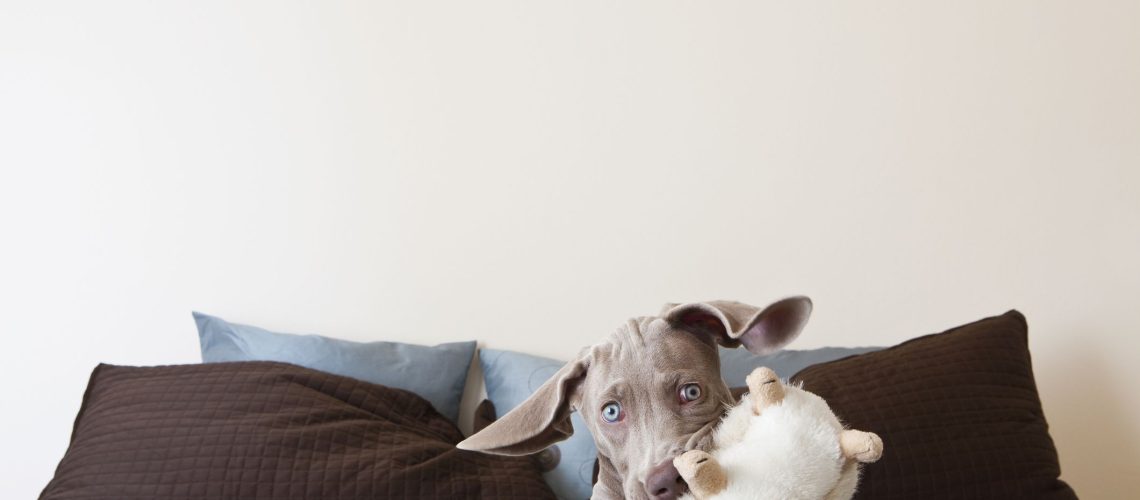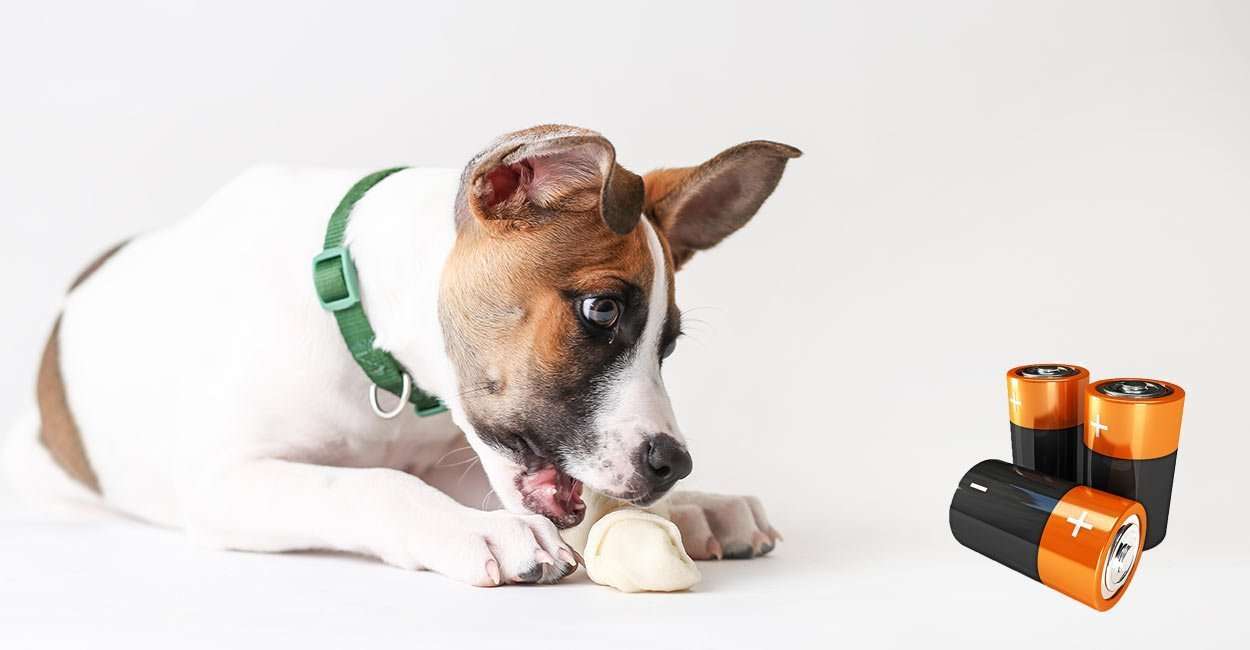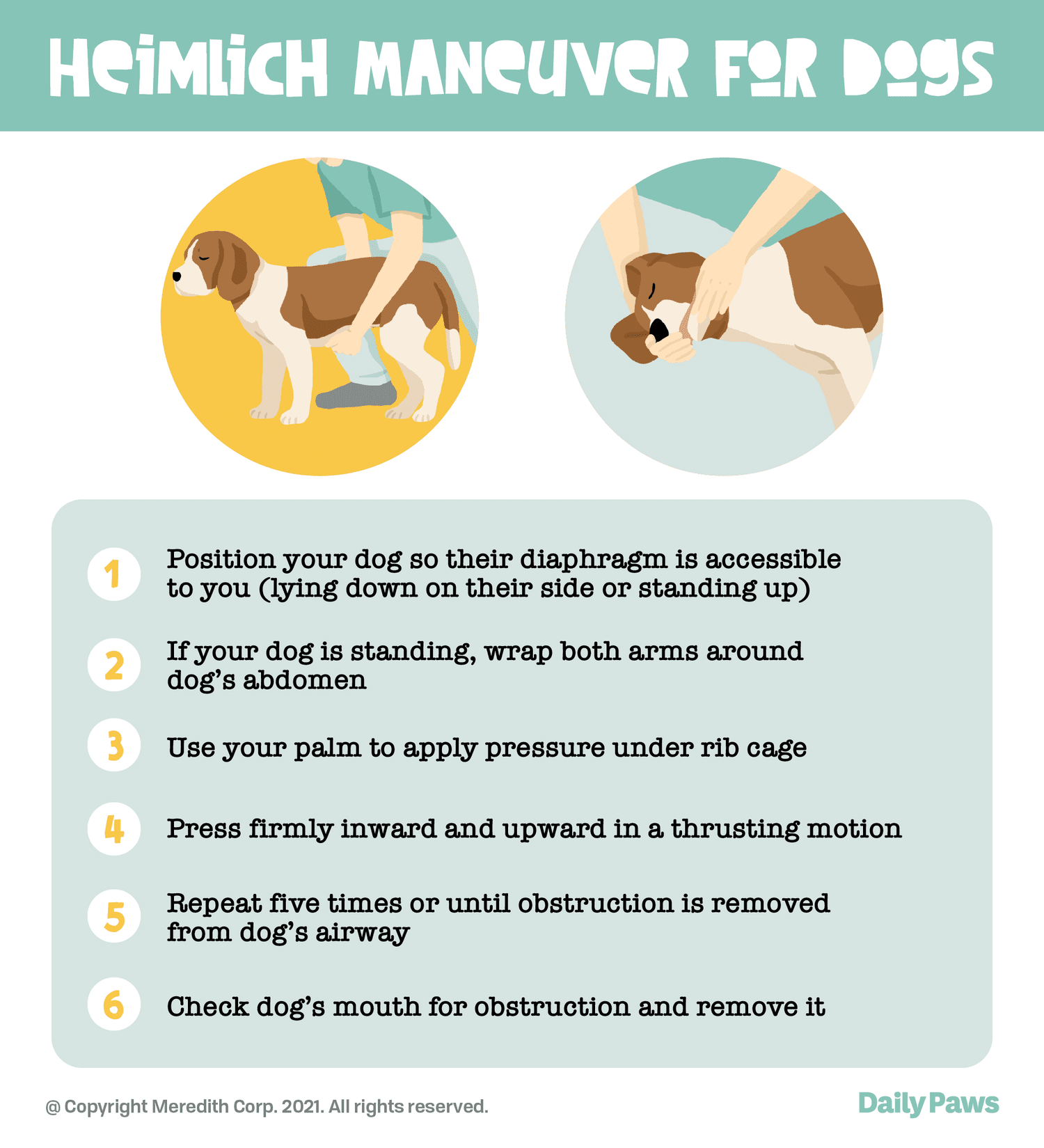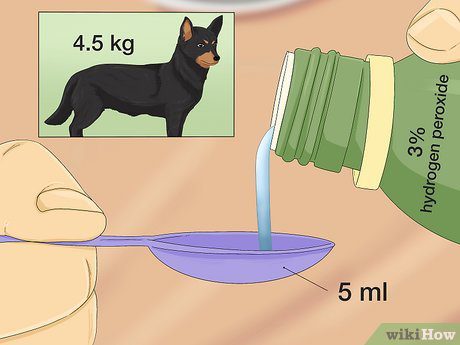Welcome to our guide on what to do when your puppy swallows something they shouldn't have. We understand that this can be a distressing situation, but with the right knowledge and prompt action, you can help ensure your furry friend's safety. In this article, we will provide you with essential tips and steps to take when faced with this common concern.
Key Takeaways:
- Act quickly: If your puppy has swallowed something they shouldn't have, it's important to take immediate action to prevent any potential harm or complications.
- Assess the situation: Determine if the object is small enough to pass through their digestive system or if it poses a risk of obstruction.
- Contact your vet: Reach out to your veterinarian for guidance on what steps to take next and whether you should bring your puppy in for an examination.
- Monitor for symptoms: Keep a close eye on your puppy for any signs of distress, such as vomiting, diarrhea, or loss of appetite. Inform your vet about any changes in their behavior.
- Prevent future incidents: Puppy-proof your home by keeping potentially hazardous items out of reach and providing appropriate chew toys to satisfy their natural urge to chew.
Signs Your Puppy May Have Swallowed Something They Shouldn't
Common Signs to Look Out For
When your puppy swallows something they shouldn't, it can be a cause for concern. It's important to be aware of the signs that your puppy may have ingested an inappropriate object. Some common signs to look out for include:
1. Choking or gagging: If your puppy is making choking or gagging noises, it could indicate that they have swallowed something large or obstructive.
2. Vomiting: If your puppy vomits repeatedly or has difficulty keeping food down, it may be a sign that there is something in their stomach that needs to come out.
3. Loss of appetite: If your puppy suddenly loses interest in their food or treats, it could be a sign that they have eaten something they shouldn't and are experiencing discomfort.
4. Lethargy or unusual behavior: If your normally energetic puppy becomes lethargic, withdrawn, or exhibits unusual behavior such as pacing or restlessness, it could be a sign of an internal issue caused by swallowing an object.
5. Abdominal pain or bloating: Swallowing a foreign object can cause abdominal pain and bloating in puppies. They may show signs of discomfort by whining, panting excessively, or having a distended belly.
If you notice any of these signs in your puppy, it's important to take action immediately to ensure their safety and well-being.
Why Acting Quickly is Important
Acting quickly when you suspect your puppy has swallowed something they shouldn't is crucial for several reasons:
1. Prevention of complications: Swallowed objects can cause blockages in the digestive system which can lead to serious health issues if not addressed promptly. Immediate intervention can prevent complications such as intestinal damage, infection, or even death.
2. Minimizing discomfort: Swallowed objects can cause pain and discomfort for your puppy. By acting quickly, you can minimize their suffering and prevent further complications.
3. Early treatment options: The sooner you seek veterinary assistance, the more options there may be for treating your puppy. In some cases, an object may be safely removed through non-invasive methods, avoiding the need for surgery.
Remember, time is of the essence when it comes to ensuring your puppy's health and safety. Don't hesitate to seek professional help if you suspect your puppy has swallowed something they shouldn't have.
Why Puppies are More Prone to Swallowing Inappropriate Objects
Natural Curiosity and Exploration
Puppies are naturally curious creatures, constantly exploring their surroundings with their mouths. This behavior is a normal part of their development as they learn about the world around them. However, this curiosity can also lead them to swallow things they shouldn't.
Their lack of experience and understanding of what is safe to chew or ingest makes them more prone to swallowing inappropriate objects. They may mistake small items for toys or treats, leading them to accidentally swallow them.
Teething Stage
Another reason why puppies are more prone to swallowing inappropriate objects is because of their teething stage. During this phase, puppies experience discomfort as their baby teeth fall out and adult teeth start coming in. To alleviate the discomfort, puppies often chew on anything they can find.
This teething behavior increases the risk of swallowing objects that are within their reach. They may chew on household items such as shoes, socks, or even electrical cords without realizing the potential danger.
It's important for pet owners to be aware of these factors and take extra precautions to keep hazardous objects out of reach from curious puppies during this stage of their development.
Tips for Preventing Your Puppy from Swallowing Harmful Things
Supervision and Limiting Access
One of the most effective ways to prevent your puppy from swallowing harmful objects is through close supervision and limiting their access to potential hazards. Keep an eye on your puppy at all times, especially during their exploration and teething stages.
If you cannot actively supervise your puppy, confine them to a safe area such as a crate or a puppy-proofed room. This will prevent them from getting into trouble and reduce the risk of swallowing inappropriate objects.
Puppy-Proofing Your Home
Puppy-proofing your home is essential to create a safe environment for your furry friend. Here are some steps you can take:
1. Store hazardous items out of reach: Keep household cleaners, medications, chemicals, small objects, and any other potential hazards securely stored in cabinets or high shelves that are inaccessible to your puppy.
2. Secure electrical cords: Puppies may be tempted to chew on electrical cords, which can lead to serious injuries. Use cord protectors or keep cords hidden behind furniture to prevent access.
3. Pick up small objects: Remove any small objects such as coins, buttons, or jewelry from the floor where your puppy could easily swallow them.
4. Secure trash cans: Use trash cans with lids that cannot be easily opened by your puppy. Dispose of potentially dangerous items such as sharp objects or toxic substances properly.
By taking these preventative measures, you can significantly reduce the chances of your puppy swallowing harmful objects and ensure their safety in the home environment.
Tips for Preventing Your Puppy from Swallowing Harmful Things
Supervise Your Puppy
One of the most effective ways to prevent your puppy from swallowing harmful objects is to always keep a close eye on them. Puppies are naturally curious and may try to explore their surroundings by putting things in their mouths. By supervising them at all times, you can quickly intervene if they attempt to swallow something dangerous.
Puppy-Proof Your Home
Another important step in preventing your puppy from swallowing harmful objects is to puppy-proof your home. This involves removing any potential hazards or items that could be easily swallowed. Keep small objects, toxic plants, cleaning supplies, and medications out of reach. Secure electrical cords and keep trash cans covered or in a location that is inaccessible to your puppy.
Provide Appropriate Chew Toys
To redirect your puppy's chewing behavior away from potentially harmful objects, provide them with a variety of safe and appropriate chew toys. Look for toys made specifically for puppies that are durable and non-toxic. Avoid toys with small parts that could be easily chewed off and swallowed.
Teach the "Leave It" Command
Training your puppy to respond to the "leave it" command can also help prevent them from swallowing harmful objects. Start by holding a treat in your closed hand and saying "leave it." When your puppy stops trying to get the treat, reward them with praise and a different treat. Gradually increase the difficulty by placing treats on the ground or introducing tempting objects while reinforcing the command.
- Always supervise your puppy.
- Puppy-proof your home by removing potential hazards.
- Provide appropriate chew toys.
- Train your puppy to respond to the "leave it" command.
By following these tips, you can greatly reduce the risk of your puppy swallowing harmful objects and ensure their safety.
Steps to Take if You Think Your Puppy Has Eaten Something Dangerous or Toxic
Stay Calm and Assess the Situation
If you suspect that your puppy has eaten something dangerous or toxic, it's important to stay calm and assess the situation. Look for any signs of distress such as vomiting, diarrhea, difficulty breathing, or unusual behavior. This information will be helpful when contacting your veterinarian.
Contact Your Veterinarian Immediately
As soon as you suspect that your puppy has ingested something harmful, contact your veterinarian right away. They will be able to provide guidance on what steps to take next based on the specific situation. Be prepared to provide details about the substance ingested and any symptoms your puppy is experiencing.
Do Not Induce Vomiting Without Veterinary Guidance
While inducing vomiting may be appropriate in some cases, it should only be done under the guidance of a veterinarian. Certain substances can cause more harm if vomited back up or may require specific treatment methods. Follow your veterinarian's instructions carefully to ensure the best outcome for your puppy.
- Stay calm and assess the situation.
- Contact your veterinarian immediately.
- Do not induce vomiting without veterinary guidance.
Taking prompt action and seeking professional advice is crucial when dealing with a potential ingestion of dangerous or toxic substances by your puppy.
(Note: The remaining subheadings will be expanded in separate responses due to character limitations.)
Hazardous Household Items and Foods for Puppies to Avoid
Puppies are curious creatures and often explore their surroundings by putting objects in their mouths. However, there are certain household items and foods that can be extremely dangerous if ingested by a puppy. It is important for pet owners to be aware of these hazards and take necessary precautions to keep their furry friends safe.
Household Items:
1. Cleaning Products: Many common household cleaning products contain toxic chemicals that can be harmful if swallowed by a puppy. Keep cleaning supplies securely stored in cabinets or high shelves out of your puppy's reach.
2. Medications: Human medications, such as painkillers or antidepressants, can be toxic to dogs. Always store medications in a secure location and never leave them within your puppy's reach.
3. Small Objects: Puppies have a tendency to chew on small objects like buttons, coins, or batteries, which can pose choking hazards or cause internal injuries if swallowed.
Foods:
1. Chocolate: Chocolate contains theobromine, which is toxic to dogs. Even small amounts of chocolate can cause symptoms like vomiting, diarrhea, rapid breathing, and even seizures in puppies.
2. Grapes and Raisins: Grapes and raisins can lead to kidney failure in dogs. It is best to avoid feeding these fruits to your puppy altogether.
3. Onions and Garlic: Onions and garlic contain compounds that can damage a dog's red blood cells, leading to anemia. Keep these ingredients away from your puppy's food bowl.
It is crucial for pet owners to puppy-proof their homes by keeping hazardous items out of reach and being mindful of the foods they offer their furry companions.
Safe Chew Toys and Treats to Keep Your Puppy from Swallowing Harmful Objects
Puppies have a natural instinct to chew, which helps with teething and keeps their jaws strong. However, it is essential to provide them with safe chew toys and treats to prevent them from swallowing harmful objects.
Chew Toys:
1. Rubber Chew Toys: Look for rubber chew toys that are specifically designed for puppies. These toys are durable and can withstand the pressure of a teething puppy's bite.
2. Kong Toys: Kong toys are made of tough rubber and have hollow centers where you can stuff treats or peanut butter. This not only keeps your puppy entertained but also provides mental stimulation.
3. Rope Toys: Rope toys are great for puppies who love to tug and chew. Make sure to choose a rope toy that is made of natural fibers and doesn't have any loose threads that could be swallowed.
Treats:
1. Dental Chews: Dental chews not only satisfy your puppy's chewing needs but also help promote good oral hygiene by reducing plaque and tartar buildup.
2. Frozen Treats: Freeze some dog-friendly fruits like watermelon or banana slices in an ice cube tray for a refreshing treat on hot days. Always make sure the fruits you offer are safe for dogs.
3. Puzzle Treat Toys: Puzzle treat toys challenge your puppy's problem-solving skills while rewarding them with tasty treats hidden inside.
By providing appropriate chew toys and treats, you can redirect your puppy's chewing behavior towards safe alternatives, preventing them from swallowing harmful objects.
When Should You Take Your Puppy to the Vet After Swallowing Something Wrong?
If you suspect that your puppy has swallowed something wrong or potentially dangerous, it is crucial to seek veterinary care immediately. While some objects may pass through the digestive system without causing harm, others can lead to serious complications.
Signs that indicate immediate veterinary attention:
- Difficulty breathing or excessive coughing
- Vomiting or diarrhea that persists for more than 24 hours
- Abdominal pain or bloating
- Loss of appetite or refusal to eat
- Lethargy or weakness
If your puppy shows any of these signs, it is important not to delay seeking veterinary care. The vet will be able to conduct a thorough examination and determine the best course of action, which may include X-rays, endoscopy, or surgery to remove the object if necessary.
Preventive measures:
To minimize the risk of your puppy swallowing something wrong, always supervise them during playtime and keep hazardous objects out of their reach. Additionally, teaching your puppy basic commands like "drop it" or "leave it" can help prevent them from picking up and swallowing potentially harmful items.
Remember, prompt veterinary attention is crucial in cases where your puppy has swallowed something wrong to ensure their safety and well-being.
First Aid Tips for Handling a Situation Where Your Puppy Has Swallowed an Object
Discovering that your puppy has swallowed an object can be a distressing situation. However, it is important to stay calm and take appropriate first aid measures while seeking veterinary assistance.
Steps to follow:
1. Assess the situation: If you witness your puppy swallowing an object, try to identify what it was and whether it poses an immediate danger.
2. Do not induce vomiting: Unless specifically instructed by a veterinarian, do not attempt to induce vomiting in your puppy as certain objects can cause further damage when brought back up.
3. Contact your veterinarian: Call your veterinarian immediately and explain the situation. They will provide guidance on what steps to take next based on the specific circumstances.
4. Observe for symptoms: Keep a close eye on your puppy for any signs of distress such as choking, difficulty breathing, or abdominal pain.
5. Prevent further ingestion: If the object is still within reach, try to prevent your puppy from consuming any more of it. This may involve gently restraining or removing them from the area.
6. Follow veterinary advice: Once you have contacted your veterinarian, follow their instructions carefully. They may ask you to bring your puppy in for an examination or provide guidance on how to monitor their condition at home.
Remember, every situation is unique, and it is always best to consult with a veterinarian for proper guidance when dealing with a puppy that has swallowed an object.
Sure! Here's a catchy conclusion for the topic "What To Do When Your Puppy Swallowed Something They Shouldn't Have" presented in a simple HTML markup table format:
```html
| Conclusion | |
|---|---|
| Step | Action |
| 1 | Stay calm and assess the situation. |
| 2 | Contact your veterinarian immediately. |
| 3 | Follow their advice and provide necessary information. |
| 4 | Monitor your puppy closely for any changes or symptoms
What to do if your puppy eats something it shouldn t?Contact your veterinarian if you are worried about what your dog has eaten. They are the most qualified to provide guidance on what steps to take. The veterinarian's office will ask you a series of questions and can offer advice on how to handle the situation effectively. How long does it take a puppy to pass an object?If an object gets stuck inside your dog, it can be uncomfortable and potentially harmful. Typically, it takes about 10-24 hours for something to pass through the entire digestive system. However, certain objects may take much longer, even several months. Does milk help a poisoned puppy?It is not recommended to give your dog any milk, food, salt, oil, or home remedies if they have been poisoned, as this can make the situation worse. Instead, it may be advised to give them hydrogen peroxide to induce vomiting. Will a dog still poop if they have a blockage?Symptoms such as diarrhea, difficulty defecating, and straining to defecate can indicate a dog's partial or complete blockage in their digestive system. In cases of partial blockage, the dog may experience diarrhea as the liquid passes around the obstruction. On the other hand, a complete blockage can result in the dog attempting to defecate but being unable to do so. Should you give water to a poisoned dog?In the event that your pet has consumed a toxic substance, it is recommended to clean their mouth with a damp towel or cloth. It is important not to provide them with any food or water before consulting with the Animal Poisons Helpline or a veterinarian. How do you flush poison out of a dog's system?In cases where the animal is unconscious, it may be necessary to flush the stomach using a stomach tube or perform surgery on the stomach. In certain situations, laxatives and medications may be prescribed to help eliminate the poison from the digestive system.
More Reads
Dr. Clara Bennett
Hello, fellow pet enthusiasts! I'm Dr. Clara Bennett, your go-to expert on all things pets. With a background in veterinary medicine and a passion for nutrition, I've spent years diving deep into the world of cats, dogs, birds, horses, and the products that keep them thriving. From the English countryside, I've witnessed the magic of animals and am here to share my knowledge, ensuring your pets receive the best care. Together, let's master the art of pet care!
All Posts »
Next Steps In Mastering Cat CareNext Steps In Mastering Dog CareJoin Our NewsletterSubscribe to receive our latest updates in your inbox! |
















